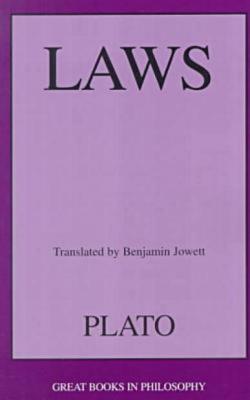
I had long and often read and heard that the values of the Greeks and Jews were an entire world apart. The Greeks embrace the austere and the ribald gods, nudity, homosexuality, worldly wisdom, the arts, beauty and pleasure; the Jews embrace a caring yet moral god, modesty, family values, divine wisdom, spiritual pursuits.
But read one of Plato’s last written works, Laws, and those contrasting images begin to blur into monochrome.
Plato’s Laws is an exploration of what the ideal laws for a new state would look like. Plato presents his ideas through a three-way discussion involving an Athenian stranger, a Spartan named Megillos and a Cretan, Clinias, as they are traveling to the sacred site of the cave of Zeus on the island of Crete. Anyone familiar with the Old Testament cannot help but be struck by many points of contact.
I have been wanting to write this post (or series) for a few years now and each time have been put off by the amount of work that organizing the material would take. I have decided now to take the easy way out and simply dot point similarities as one reads through the Laws even though this will involve repetition and disjointedness of themes. Take these posts, then, as a draft document for a more coherent presentation. I will often refer to biblical passages generally without quoting them since most interested readers will know of them anyway and they are details I can fill in later.
There is no reason to think that Plato, writing in the early fourth century BCE, was influenced by the Jewish writings. (Later church fathers did attempt to argue that Plato had indeed been indebted to Moses.) A number of scholars in recent decades have argued that the Pentateuch originated much later than has traditionally been thought — some arguing that the Pentateuch may date as late as Hellenistic (from late fourth century) times. I do not discuss explanations of the similarities of thought here. It is enough at this stage to set out apparent evidence for commonality.
I further comment from time to time on points of contact between Laws and the biblical literature that do not relate to legal content. I am not arguing that Plato’s work itself was a direct influence (nor do I deny the possibility) but do want to highlight the literary tropes, the wider literary culture, in which the biblical writings were produced.
I once posted on Hock’s admonition that New Testament scholars should read ancient novels; they should also read ancient philosophical works and acknowledge more fully than many of them currently do the extent to which the Bible is a product of its wider contemporary literary and ethical cultures.
We start with Book 1.
Benjamin Jowett translation at Internet Classics Archive is in dark azure.
R. G. Bury translation at Perseus Digital Library is in indigo.
The Purpose of the Law
Deut 28, Exod 19, Lev 26, Psalm 1 . . . . the law bestows blessings, both spiritual and material. Among these are good health and physical strength; also great wealth. Godly wisdom is the chief blessing.
Deut 4:6-8 – Law brings reputation for being a wise and understanding people, a light to the world.
Plato, Laws 1.631b: Continue reading “Plato’s and the Bible’s Ideal Laws: Similarities 1:631-637”
